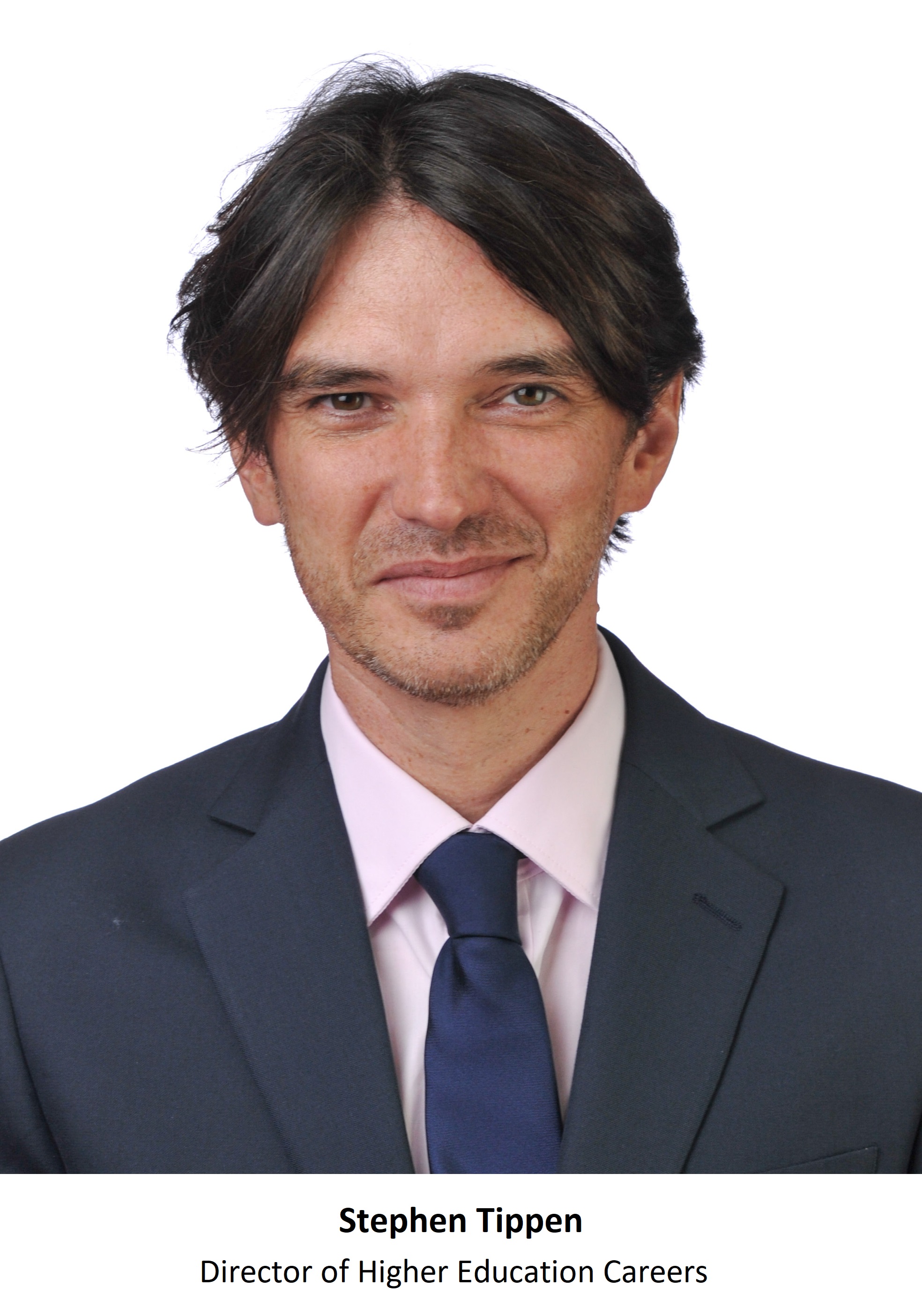Making university choices | Six suggestions to get you started
2019-01-30
 At the College’s recent ‘Introduction to Higher Education’ evening I likened making universities choices to the experience I have of going to a vegetarian restaurant. Typically, as a vegetarian, there are usually only two things I can eat on a normal menu – then suddenly I am faced with a whole host of appetising options and I start to get a little anxious. Ultimately, I’m faced with too much choice! Although I’m in danger of trivialising things somewhat this is, to an extent, the same sense of anxiety faced by many parents and pupils when faced with the great range of universities and courses on offer around the world.
At the College’s recent ‘Introduction to Higher Education’ evening I likened making universities choices to the experience I have of going to a vegetarian restaurant. Typically, as a vegetarian, there are usually only two things I can eat on a normal menu – then suddenly I am faced with a whole host of appetising options and I start to get a little anxious. Ultimately, I’m faced with too much choice! Although I’m in danger of trivialising things somewhat this is, to an extent, the same sense of anxiety faced by many parents and pupils when faced with the great range of universities and courses on offer around the world.
 Despite the potentially daunting range of appealing university options, it is possible to identify certain key factors which can help narrow down your choices. Here are six of my top considerations to bear in mind when making your initial options list.
Despite the potentially daunting range of appealing university options, it is possible to identify certain key factors which can help narrow down your choices. Here are six of my top considerations to bear in mind when making your initial options list.
- University Rankings - A range of organisations compare global universities and rank them using a variety of factors. The most prominent are run by Quacquarelli Symonds (QS), Times Higher Education and US News and World report. They all use different formulas so they will produce slightly different results. There are also rankings lists compiled on different countries and they even offer statistics on the level of their graduates’ overall employability. Rankings lists are an ideal way of getting a good initial overview of what a quality university looks like. However, I wouldn’t rely on them solely.
- University Reputation – There is an old saying: ‘“Form is temporary, class is permanent”. This is never truer than when looking at universities. University rankings give us a ‘snapshot’ of how universities are currently doing, but a university’s reputation is a much more long-standing, if less easily definable, factor. Attending universities with a reputation built over decades, and sometimes centuries, is a good guarantee that a future degree will maintain its value. After all, this is the reason why US Ivy League universities, and the likes of Oxbridge and Russell Group universities in the UK, are so competitive.
- The Subject – Sometimes the subject or major that a pupil is looking to study will determine their university choices. This is particularly the case with certain specialist subjects. Universities such as Loughborough in the UK are well known to provide some of the best sports-related courses, whereas, Swiss universities, such as EHL, are considered to run some of the best courses in Hotel Management. It is also common for pupils applying to art, drama or music related courses to apply to specialist institutions which will purely focus on these disciplines.
- Location – Pupils often make the mistake of finalising university choices without thinking about where exactly they will be living and studying - and this means more than simply choosing which country! Pupils who revel in big cities may feel bored in the more sedate environment of a small Liberal Arts College in the US, whereas those who enjoy more one-to-one attention and a slower pace of life may be lost at universities such as NYU in New York or UCL in London. A lot of information can be gained online these days, but, ultimately, it is always best to visit the institutions themselves whenever possible.
- Financial realities – Pupils, and particularly their parents, quickly find out university is not cheap. However, a careful review of current fees, living costs and scholarship opportunities can help families to minimise these costs. It can also be a key factor when pupils decide between universities. Often the fees a university student will pay are determined by their passport, with lower fees, or more generous financial aid, available to nationals of a particular country. That said, there are clearly some countries which provide outstanding value for money. The Netherlands, for example, have world-class universities, such as the University of Amsterdam, but also charge much lower tuition fees compared to the US and UK.
- Student Experience – As much as parents won’t want to accept this – particularly as they stare at their dwindling bank balance – university is about more than studying! For most undergraduate students, this is their first opportunity to ‘stand on their own two feet’ and the less definable ‘student experience’ is likely to live long in their memory. Pupils will make lifelong friends, secure excellent future networking contacts and have opportunities to become involved in range of unique activities for the first, and sometimes only, time in their life. Although being president of the university quidditch team might not be the first thing on a graduate CV, experience tells us that students often benefit as much from the wider activities that university-life offers than any specific lectures. The numerous actors and comedians who have emerged from the Cambridge Footlights or the informal connections that dominate in some top firms are a fitting testament to the importance of the wider university experience.
 Researching your options at Wellington’s Global University Fair
As this brief overview suggests, making university choices is an increasingly complex process and it is vital that pupils fully research their options. This is why I am delighted to announce that Wellington College International Shanghai will hold its first Global University Fair on 15th March 2019, 3-5pm. With 100 universities representing 17 different countries, this event will provide an invaluable opportunity for pupils, parents, staff and the wider Shanghai community to engage directly with representatives from some of the top universities around the world. The fair will also include a series of presentations led by university representatives on a range of relevant topics. Please look out for more details of this exciting event in the coming weeks.
Researching your options at Wellington’s Global University Fair
As this brief overview suggests, making university choices is an increasingly complex process and it is vital that pupils fully research their options. This is why I am delighted to announce that Wellington College International Shanghai will hold its first Global University Fair on 15th March 2019, 3-5pm. With 100 universities representing 17 different countries, this event will provide an invaluable opportunity for pupils, parents, staff and the wider Shanghai community to engage directly with representatives from some of the top universities around the world. The fair will also include a series of presentations led by university representatives on a range of relevant topics. Please look out for more details of this exciting event in the coming weeks. 相关资讯

Be You. Be More. | Jay的艺术生长之路2025-12-03
从三四岁在纸上随意涂鸦,到如今在近两米高的画布上纵情挥洒颜料,12年级学生Jay的艺术之路,是一次伴随着思考、尝试与自我突破的成长过程。 点击观看惠灵顿艺术资优生Jay的故事小时候的涂鸦画作 十岁那年,Jay走进一家专业画室,第一次面对大幅画布时,他感受到前所未有的自由:“画布很大,能承载很多想象。” 从纸上的铅笔、圆珠笔,到画布上的丙烯颜料,材料的转变带来了表达的跃迁——调色、叠加、实验,绘画
点击阅读

立即报名惠灵顿2025 年Summer Festival: 超级英雄集结!2025-04-22
一年一度的Summer Festival即将于5月10日盛大开启!作为惠灵顿引以为傲的传统活动,这一天不仅是校园的欢乐盛会,更是我们凝聚社区精神、共庆校园文化的重要时刻。今年,我们以“超级英雄”为主题,诚邀每一位成员以创意装扮亮相,共同打造一场充满活力与热情的庆典。 不要错过!扫描海报上的二维码进行购票 欢乐嘉年华特别放送 想清凉一夏就来海王戏水乐园打水仗,爱热闹的一定要锁定正义联盟大舞台的精彩
点击阅读

惠灵顿Ingenium Lions队在ACAMIS乐高联赛中大放异彩2025-02-27
上海惠灵顿Ingenium Lions机器人队在上周的ACAMIS(中蒙国际学校协会)地区乐高联赛中表现非凡,一举斩获三项大奖! 我校7至9年级的学生参加了FLL挑战赛,该挑战赛要求参赛选手设计乐高Spike Prime科创套装机器人并进行编程,他们需在两分半钟内完成原本需要15分钟的任务。挑战赛今年的主题是“水下生命”,学生们必须围绕复杂的水下生态系统进行改动和创新。 尽管面临着工程领域的重重
点击阅读










